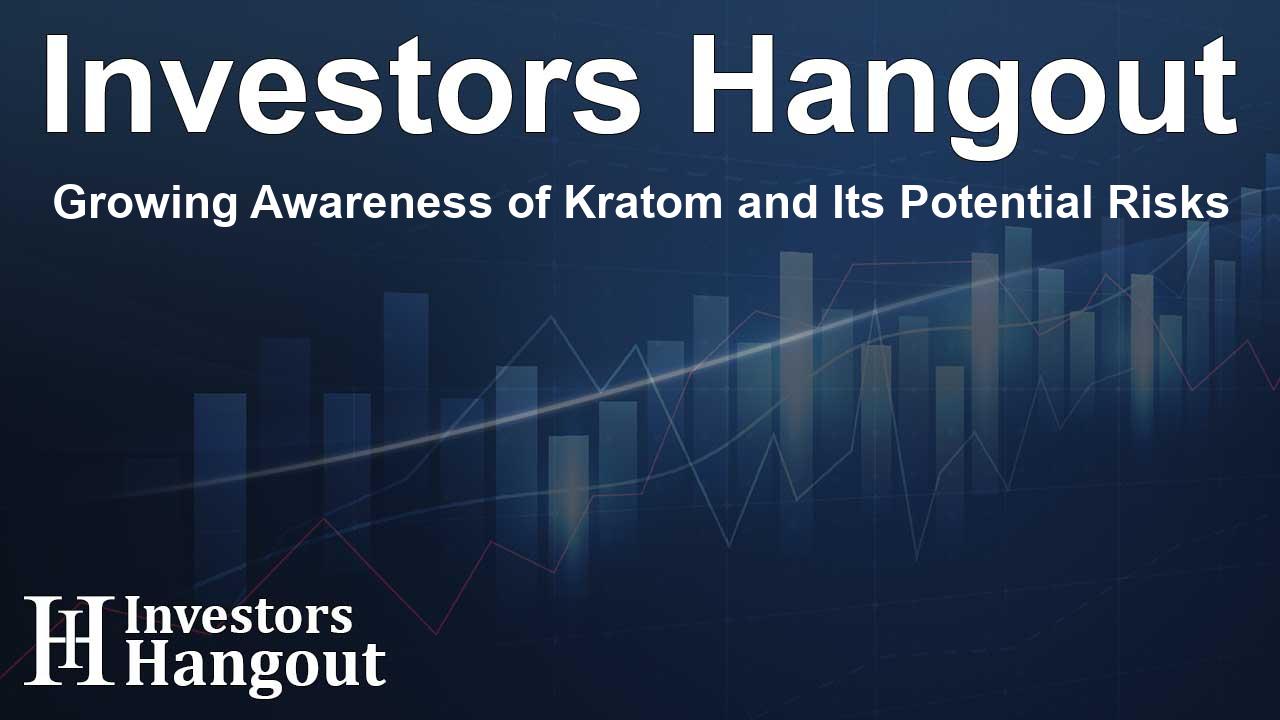Growing Awareness of Kratom and Its Potential Risks

Understanding Kratom and Its Impact on Public Health
In recent months, there has been an increasing focus on kratom, a substance that many people often refer to as "gas station heroin." This heightened attention comes as health officials and lawmakers express concerns about its safety and potential for addiction. According to recent findings, only a small percentage of Americans—19%—understand the potential dangers of kratom, as highlighted by a poll conducted by a leading mental health organization.
What Is Kratom?
Kratom originates from the leaves of the Mitragyna speciosa tree native to Southeast Asia and is typically available in various forms, such as capsules, extracts, or teas. These forms can contain high concentrations of two primary compounds: mitragynine and 7-hydroxymitragynine. These substances interact with the same receptors in the brain as opioids, leading to experiences that some users may seek out. However, the effects can range from mild euphoria to severe addiction and withdrawal symptoms.
Regulatory Landscape and Health Risks
Despite its availability, kratom is controversial. Federal institutions, including the FDA, have begun taking steps to regulate this substance. These actions follow alarming data indicating that higher concentrations of kratom's active components can lead to significant health risks. Public health advocates warn that the unregulated sale of kratom, primarily in convenience stores, poses a real danger to those unaware of its risks.
The Public's Awareness and Perception
The aforementioned poll sheds light on the broader public's views about various unregulated substances marketed for wellness purposes, including kava, blue lotus, and others. Results indicate that less than 8% of Americans are very familiar with these alternatives, signifying a general lack of knowledge about the substances they might encounter.
Concerns from Mental Health Professionals
Mental health experts, such as the president of the organization responsible for the poll, have voiced strong concerns about the implications of widespread kratom availability. Dr. Theresa M. Miskimen Rivera emphasizes the significant risks of taking unregulated supplements, urging individuals to consult with healthcare providers before considering any new substance for health purposes. This advice is critical since many products are labeled as natural but can harbor serious health threats.
Statistics Surrounding Addiction in America
The poll also touched on the perceptions of addiction among Americans. Notably, one in three individuals reported that they either know someone facing substance use disorders or suspect they do. Throughout these conversations, a majority expressed willingness to provide assistance, indicating that 75% would refer someone to addiction treatment services, while 76% would engage in conversations offering support.
How to Seek Help
When it comes to accessing help for addiction issues, the public indicated various avenues they might pursue, including seeking advice from a healthcare provider (56%) or reaching out to family members (47%). Moreover, many noted the importance of community support resources and online information, marking a shift towards more collaborative approaches in addressing the addiction crisis.
The Importance of Naloxone
In stark contrast to the uncertainty surrounding kratom, the poll revealed overwhelming support for naloxone, a life-saving medication used to counteract opioid overdoses. Nearly 80% of respondents believe it's crucial for the government to ensure these medications are accessible. This consensus stretches across political boundaries, with many advocating for expanded availability to combat the ongoing opioid epidemic.
Conclusion: Looking Ahead
The data from this assessment reveals alarming trends regarding public awareness of kratom and its associated health risks. Mental health professionals are increasingly calling attention to these issues, stressing the importance of education and open dialogue. As the conversation continues to unfold around kratom, it’s vital for individuals to remain informed and proactive about the substances they consume.
Frequently Asked Questions
What is kratom and why is it concerning?
Kratom is a substance derived from a tree native to Southeast Asia, which can lead to addiction and withdrawal symptoms, similar to opioids.
How aware are Americans of kratom's risks?
Only about 19% of Americans reported familiarity with kratom and its potential dangers, according to recent polling data.
What steps are being taken to regulate kratom?
The FDA has initiated regulatory measures, signaling concerns about kratom's safety and availability in the marketplace.
What do Americans think about addiction support?
Many Americans express a willingness to help friends or family with addiction, often referring them to treatment resources or engaging in supportive conversations.
How important is naloxone availability?
There is strong public support for ensuring naloxone and other life-saving opioid medications are widely available, with nearly 80% advocating for it.
About The Author
Contact Addison Perry privately here. Or send an email with ATTN: Addison Perry as the subject to contact@investorshangout.com.
About Investors Hangout
Investors Hangout is a leading online stock forum for financial discussion and learning, offering a wide range of free tools and resources. It draws in traders of all levels, who exchange market knowledge, investigate trading tactics, and keep an eye on industry developments in real time. Featuring financial articles, stock message boards, quotes, charts, company profiles, and live news updates. Through cooperative learning and a wealth of informational resources, it helps users from novices creating their first portfolios to experts honing their techniques. Join Investors Hangout today: https://investorshangout.com/
The content of this article is based on factual, publicly available information and does not represent legal, financial, or investment advice. Investors Hangout does not offer financial advice, and the author is not a licensed financial advisor. Consult a qualified advisor before making any financial or investment decisions based on this article. This article should not be considered advice to purchase, sell, or hold any securities or other investments. If any of the material provided here is inaccurate, please contact us for corrections.
